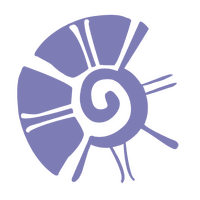
How to Relieve Jaw Tension: Causes and Solutions
Introduction
In this Blog we are going to look at how to relieve jaw tension: causes and solutions. If you have ever experienced jaw joint pain (also known as TMJ Disorder) you're not alone. Many people experience tension and pain in their jaw. Sore jaw and TMJ disorders can be extremely uncomfortable.
How To Relieve Jaw Pain - Causes and Solutions
Different types of Jaw Pain
The jaw may have pain and discomfort in many places on the face and neck. Depending on what pain you experience a tight jaw may vary from painless to severe and achy. This feeling may worsen when eating and yawning. The precise location of the suffering also differs. A tight jaw can cause pain on one or both sides of your face.
Why do I have tight jaw muscles?
Tightness in the jaw is caused by stress, anxiety, inflammation or damage. Excessively chewed or overexerted muscles can cause swollen muscles or swollen bones.
Painful muscle contractions can then impact the jaw joint, formerly known as TMJ (temporomandibular joint) which is similar to that on the hip joint.
The surrounding muscles control movement like sneezing, chewing, and waking. In some instances, the person may feel jaw tightness on either side of the jaw.
If you imagine the spine, then the jaw is attached to the skull at the top, whilst the hips are attached to the pelvis at the bottom.
Temporomandibular Joint Misalignment
You have this joint on either side of your jaw. It is just in front of your ears. The TMJ joints work like sliding hinges, connecting your jawbone to your skull.
The joints enable you to open and close your mouth. You may experience TMJ symptoms, like local muscle disorders, if something has caused these joints to move out of position, it can result in various levels of pain.
Emotional or Physical Tension in your Body
A painful jaw often develops when you are feeling a lot of stress or anxiety due to unconsciously clenching your jaw without realizing it. People usually don't know they're doing this until they start to feel pain.
Emotional Tension can cause jaw pain because it's tension is often expressed through the jaw muscles. clenching your teeth, tension headaches, and neck pain are all common symptoms of unresolved emotional stress.
Interestingly, it is actually the inability to express yourself, that often creates the tension, 'keep your mouth shut' or 'put a zip on it' are sayings that refer to situations where you literally keep your emotional mind and body suppressed.
Teeth Grinding (Bruxism)
It's not always easy to know that you're grinding your teeth, but one sign that you might be doing this is if you experience muscle tightness in your upper or lower jaw. This pain can sometimes be connected with other physical pain or tension elsewhere in your body.
Teeth grinding, can damage your upper and lower teeth, as well as create TMJ pain in your jaw joints.
Difficulty Chewing
If pain in the jaw becomes more than slight discomfort, it can cause difficulty chewing or even trouble swallowing as well as other symptoms. Excessive chewing can be a trigger for TMJ disorders.
Opening your mouth wide and biting on an apple can feel very uncomfortable. Eating very hard foods can also be troublesome and frustrating.
You may need to resort to eating soft foods.
Rheumatoid Arthritis
A condition like rheumatoid arthritis can cause a lot of inflammation, which could show up in your jaw.
If this is the case you want to be keeping the area mobilized, and looking at ways to reduce general inflammation in your body.
Check it's not something else?
Make sure you also check with your dentist that it is not some potentially fatal bacterial infection. It is important to check this out if the pain feels excruciating and you begin go get a high temperature.
How to Relieve Jaw Pain - Causes and Solutions
Diagnosing jaw pain
If your jaw is too tight to chew or talk, it may be time for an exam to determine what is causing the problem.
It is possible to diagnose tight jaw muscles through an oral or dental examination performed by a dentist. In some instances, a TMJ issue may require an MRI or CT scan for the diagnosis.
If your symptoms haven't yet been determined and you are in serious pain, treatment should be started.
How to loosen tight jaw muscles?
To loosen your jaw muscles you can try the following:
Jaw Joint stretches
Stretch your jaw by doing jaw joint stretches, opening your jaw as wide as possible, and holding for a few seconds. Repeat five times.
You can do this kind of jaw joint stretch regularly to release facial muscles. Jaw Exercises will also help release muscle tension in the shoulder and neck muscles.
Different movements of the Jaw
The jaw is designed to open and shut, shift from side to side, and slide backward and forwards (retraction and protraction).
So it is important to mobilize your jaw in all these directions. You can learn exactly how to do these movements with video guides in Get Into Your Body.
Viewing and understanding how to move your jaw could make a big difference to your overall recovery and prognosis.
Clench and release your jaw muscles ten times.
Initially with Temporomandibular disorders tightening and releasing your jaw, without opening your mouth may be easier. This will still activate the muscles around your temporomandibular joints.
It is just important that you consciously release the tightness in the jaw, after tightening the facial muscles in this area.
The Smile Stretch
Believe it or not, actually creating a big smile with your face, will help to release your jaw!
Self-Massage
Gently rubbing your temporal bone or the back of your neck can release muscles. This gentle pressure can increase blood flow and help to relieve jaw tightness and tension in the surrounding tissues in your head and neck, which may indirectly loosen your jaw muscles.
You can use your finger knuckles to compress the area between your lower jaw and upper front teeth to relieve TMJ tightness.
How to Relieve Jaw Pain - Causes and Solutions
Professional Treatments for TMJ
Clinical Massage Treatment
Nervous System Disorders are often helped by gentle hands-on treatment. Gentle massage soothes muscles and will reduce muscle tightness.
TMJ tension can be caused by stress, so massage treatment may help the area to slowly open and release.
Clinical Massage will have far more impact than self-massage as it affects muscles where the therapist will be able to work on the muscles inside your jaw to release tension.
Cranial Osteopathy
It's possible that having the joints manipulated and realigned will ease the pressure.
Gait Realignment
The relationship between your jaw and the rest of your body could be out of alignment.
Especially if you have other pain in your body, it can be helpful to do some Biomechanical Assessment (Postural Alignment) and to look at the structure and positioning of your whole body.
Hot compress around the affected area
If you have tension in the jaw, using a warm compress can help to relieve pain and release the jaw tightness
Anti-inflammatory Medication
Taking ibuprofen or another nonsteroidal anti-inflammatory drug may be helpful if the pain in the jaw is too much.
It is better to reduce the inflammation, as this lessons the amount of stress and tension in the area.
It is common for people to try pain relievers. However, at this point finding physical therapy is sensible.
You do not want to rely on painkillers longterm for this condition.
Using a Mouth Guard
Mouthguards can be molded by your dentist. Dental and Craniofacial Research shows that they act as a barrier between your upper and lower jaw, and relieve pressure from teeth grinding.
Using the mouth guard regularly at night when you sleep helps tight jaw muscles to release, as your teeth can not grind and the surrounding muscles are unable to clench.
So the mouth guards relieve excessive chewing and grinding; easing pressure from surrounding muscles.
Conclusion
Tight teeth muscles may inhibit the basic routine of daily activities including speaking and eating foods.
The condition of contracted jaw joints may be very painful. Often the symptoms can be treated by medical or physical therapy treatments.
Cause of Tight Jaw Muscles
Tight teeth may be the result of several different health issues including a problem with your temporomandibular joint, or habits, including those mentioned earlier.
A tight jaw can cause pain or anxiety; it can cause teeth grinding, or underlying medical problems like arthritis.
Treatment for a tight jaw consists of massage, stretching, medication and massage techniques. A dental guard is also useful in stopping teeth grinding.
For more information on treating TMJ, or any other pain condition or health challenge, get in touch so we can get you on the road to recovery.
Book your free 30 min consultation now


Comments